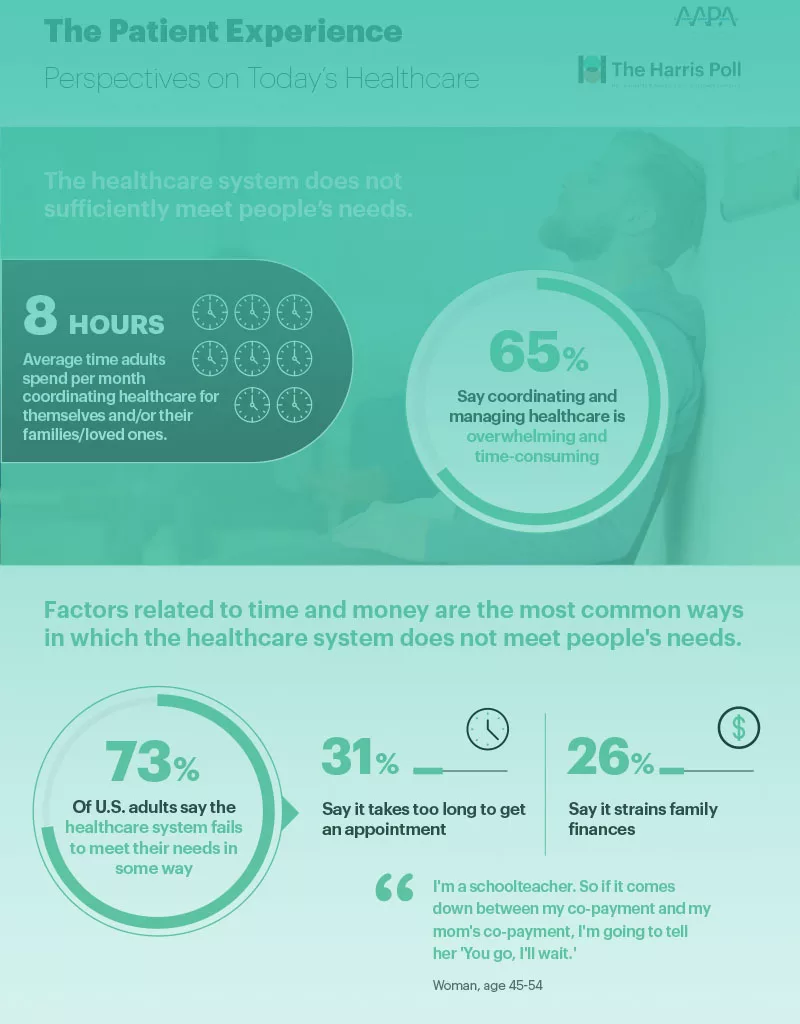


The Patient Experience
Perspectives on Today’s Healthcare
To understand the current patient experience within the U.S. healthcare system and identify how PAs can help improve access to care and overall patient outcomes, AAPA commissioned The Harris Poll to conduct an independent public opinion survey.
0% of adults
Wait more than a week for an appointment
0% of Latino adults
Have skipped or delayed healthcare in the past two years
0 hours
U.S. adults spend the equivalent of an entire workday each month coordinating care for themselves and/or their family or loved ones
0.0 Hours
0.0 Hours
0.0 Hours
*LATINO ADULTS ARE A SUBSET OF BIPOC ADULTS
Report Summary
The U.S. healthcare system is stretched thin – a reality both illuminated during and exacerbated by the COVID-19 pandemic. In addition to healthcare provider burnout and workforce shortages, inequalities in healthcare persist and simply navigating the system can be enigmatic.
Current assessments of healthcare in the U.S. are mostly negative: Few adults give the overall U.S. healthcare system an A grade, and more grade it below average (i.e., a D or F grade).
In fact, many adults say the healthcare system fails to meet their needs in some way – for example, taking too long to get an appointment or straining family finances.
The AAPA-Harris Poll survey, drawn from a nationally representative sample of more than 2,500 U.S. adults, explores the varied and vast experiences of patients struggling to access needed healthcare. The report provides an in-depth analysis of the driving forces that inhibit healthcare access and delay care.
Overwhelming and Time-Consuming: The Patient Experience
For the American population, coordinating and managing healthcare is overwhelming and time-consuming. Not only are U.S. adults spending on average one working day per month coordinating care for themselves or their loved ones, but nearly 3 in 4 (73%) U.S. adults report that in one way or another the healthcare system is failing to meeting their needs. The cost of care and time spent waiting for appointments are the most common factors contributing to patient dissatisfaction with the system.
0%
Say coordinating and managing healthcare is overwhelming and time-consuming
Patient-Provider Interactions
0%
Agree they wish healthcare providers took more time to understand them
0%
Say there are times when they are afraid to speak up during healthcare appointments
A Closer Look at the Patient Experience in 18 States
In follow-up to the national survey, The Harris Poll conducted additional research in 18 states. Collectively, the states form a diverse cross-section of the American healthcare landscape. The surveys capture a wide range of healthcare experiences, from urban to rural settings and diverse patient pools, reflecting the challenges and strengths within different regions of the country. Further, these 18 states represent varied PA regulatory environments, providing a more nuanced understanding of healthcare dynamics and highlighting the importance of PA practice laws in shaping patient care.
Top U.S. Health Concerns: The Patient Expereince
When conducting the national survey, The Harris Poll collected research focusing on the experience of patients with diabetes, obesity, and cancer to capture the issues patients with these conditions are encountering within today’s system.
